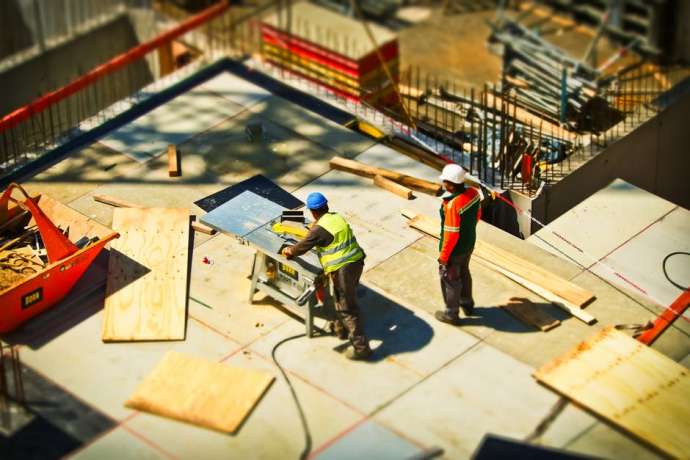STA, 29 August 2019 - While the volume of construction work in Slovenia in the first half of the year was up by 14% year-on-year, certain statistical indicators suggest the trend may reverse. Major builders expect the volume of business to be similar to last year's, but are cautious as they would like to see more stability in state investments.
The volume of construction work has increased, but the statistics on building permits suggests that the trend could reverse in the near future, as the number of permits has been dropping steadily over the past three years.
In the first half of 2019, the number of approved permits was down by 10% year-on-year, with the number of permits for residential buildings increasing, and the number of permits for non-residential buildings significantly dropping.
The latest business sentiment data for the sector show a deterioration both on the monthly and annual levels, but the indicator is still above the long-term average. Construction companies have decreased their prospects of hiring, while expectations related to orders are somewhat more optimistic.
Major builders such as Kolektor Koling, Kolektor CPG, CGP and Pomgrad have confirmed for the STA that they are cautious regarding future operations. They expect this year to be similar to last, and are ready for a potential cooling of the market.
They would like to see more stability on the market, including by the state embarking on major projects, especially in road infrastructure.
Kolektor Koling and Kolektor CPG say that there is demand for construction work and that this will be the case at least until the end of the year. They complain about the growth of costs and prices of input material and a shortage of qualified staff.
The members of the construction arm of the Kolektor conglomerate are currently building a new technological centre of the national grid operator ELES, upgrading the Rimske Toplice-Laško railway and reconstructing the railway infrastructure in the Croatian port of Rijeka.
For 2020, they expect the current rate of growth to be maintained, but are cautious about many risk factors, so they will constantly monitor the situation and be ready for a quick response to possible changes.
Kolektor Koling and Kolektor CPG admit that the construction sector in the country is highly dependent on public projects, such as the new Koper-Divača railway line, the Third Development Axis expressway and the second tube of the Karavanke tunnel.
"If the state stays true to its commitments and provides for a continuity of demand, then we can expect a stable and healthy growth also after 2020," they assessed.
The company CGP currently operates at full capacity, with its ongoing projects including a multi-storey car park in Koper, a high-end residential and hotel complex in Ljubljana and a Lidl logistics centre in Arja Vas, among others.
"We intend to end this year on a par with the previous year," said the company whose projects in the coming year include an Ikea shopping mall in Ljubljana and construction of apartments for the public Housing Fund.
"In the coming years we see a lack of projects mostly in the field of reconstruction and construction of public roads," CGP has told the STA, pointing a finger to the government.
Pomgrad is also operating at full capacity this year, with its ongoing projects including the upgrade of the Pesnica-Šentilj and Poljčane-Slovenska Bistrica rail sections and elderly homes near Ptuj and in Croatia's Osijek.
Together with GH Holding and VGP Drava Ptuj of Slovenia and the Croatian utility company Bikarac, they have signed a EUR 26.5 million deal to design and build a waste management centre for the city of Šibenik and its surroundings.
According to Pomgrad management board member Boris Sapač, the company expects to sign some more major contracts soon. But he complained about "public procurement procedures being too slow, which makes it hard to make plans".
The company has noticed a standstill in investment in state roads, which is something it does not welcome. "The volume of investment or tenders should be stable. This would also be good for road infrastructure, which is in a poor condition."
Sapač said that builders needed stable conditions instead of steep annual growth rates and deep falls. "This is why we are cautious optimists in our company. Excessive growths are not sustainable in our sector."







